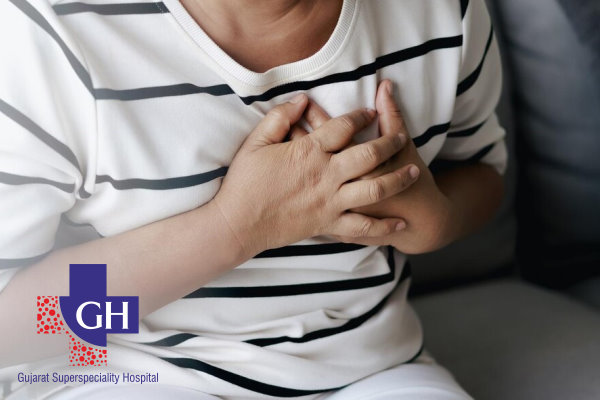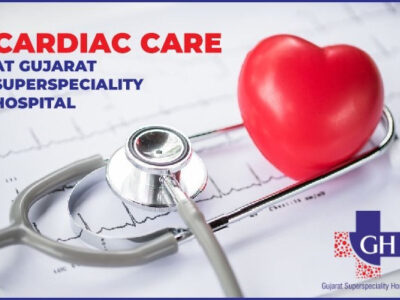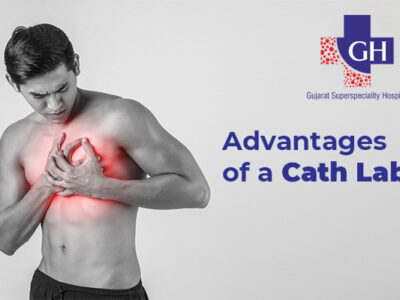Cardiac arrest can happen to anyone, anytime. It has become very common nowadays and is not restricted to any one age group. Irrespective of whether you are young or old, you can fall prey to cardiac arrest. So, what does a cardiac arrest mean? When you suffer a cardiac arrest, it means that your heart has stopped functioning, thus stopping the flow of blood to different parts of the body like brain and various organs. The complete functioning of the body is affected within a short span of time and if not attended to immediately, the cardiac arrest will surely lead to loss of a precious life.
What is Cardiac Arrest?
While everyone is familiar with the term “cardiac arrest”, a deeper understanding of what exactly happens when we get a cardiac arrest is very important to know. The human heart works on an electrical system, which functions around-the-clock to keep the heart beating. When some problems occur in these electric signals, it leads to disruptions in the heartbeat, known as arrhythmia. These can be of different types and are not considered to be that dangerous. What is fatal, however, is the ventricular fibrillation, which is the main reason behind cardiac arrest as it considerably slows down the blood pumping capacity of the heart.
Many people confuse cardiac arrest with heart attack. The latter happens when blood flow to a certain part of the heart is stopped while cardiac arrest takes place when there are disruptions to the heart’s electric vibrations.
Those people with a history of coronary artery disease are most likely to get cardiac arrest, as their arteries are blocked and this greatly affects the flow of blood to and from from the heart. The blockage reduces the blood flow into the heart and this in turn will gravely affect the heart’s electrical system. Cardiac arrest is not something to be taken lightly as it can harm any one of us and in most cases, fatally.
Signs of a cardiac arrest
Now that it has been understood what is a cardiac arrest, we turn our attention to what are the warning signs of the cardiac arrest. It is very important to know what are the signs of a cardiac arrest as if we have prior knowledge about them then we can identify a cardiac arrest as and when it happens and save many a life. Read on to get a better understanding of the symptoms of a cardiac arrest:
While a cardiac arrest usually occurs without any warning, there are some initial indicators, which signal that a cardiac arrest is bound to happen very soon.
- Sudden collapse: When a person suffers from cardiac arrest, his heart will stop functioning and as a result, he/she will have a sudden collapse. This is the first sign of a cardiac arrest.
- Become Unconscious: With the blood flow to the brain and different body parts getting stopped, the person will lose consciousness immediately.
- No pulse: The person suffering from a cardiac arrest will not be having a pulse as all the blood flow in the body has stopped.
- No breathing: When a person has a cardiac arrest, then they will immediately stop breathing as there is no blood flow to and from the heart.
- Palpitations: If a person is going to get a cardiac arrest, then they will first get palpitations and start sweating. So, if someone near you starts palpitating, then be sure that they are suffering from a cardiac arrest.
- Discomfort in chest: Before the onset of a cardiac arrest, the concerned person will start feeling discomfort/uneasiness in their chest and will be extremely short of breath.
- Sudden weakness: An early sign of an impending cardiac arrest is the person feeling weak and tired all of a sudden.
Treatment of Cardiac Arrest
In case of a sudden cardiac arrest, the following emergency steps should be taken to revive the affected person:
- Call Emergency: If someone has suffered a sudden cardiac arrest, people nearby should immediately call our Emergency helpline – +91 6355808841. The need of the hour is to get the affected person to the hospital as soon as possible and thus one needs to get in touch with Emergency services immediately.
- Perform CPR: While waiting for the emergency services, you can perform CPR on the sick person to revive the affected person. In CPR, one needs to push down at least two inches at 100 to 120 pushes a minute in the middle of the chest. This helps the chest to return to its normal position after each push.
Precautions and Care
With the danger of sudden cardiac arrest becoming more and more real, people of all ages should take the following precautions to ensure that they stay hale and healthy for a long period of time.
1) Lead a healthy lifestyle: To minimize the chances of suffering a sudden cardiac arrest, everyone should lead a healthy lifestyle. This includes regular exercise, a healthy diet and reducing daily stress. Getting enough sleep and meditation also brings down the chances of sudden cardiac arrest.
2) Go for regular check-ups: It is very important to go for regular check-ups to know about your heart condition and overall risk for cardiac arrest. If you suffer from any conditions like high blood pressure, high levels of cholesterol, then be sure to take medication on time to avoid sudden cardiac arrest.
A cardiac arrest can happen suddenly and negatively impact the life of the affected person and his near ones. While it is difficult to predict a cardiac arrest, one can certainly keep it at bay by making certain lifestyle changes.
Facilities at Gujarat Super Speciality Hospital
In Vadodara, the Gujarat Super Speciality Hospital is best equipped to handle cases of sudden cardiac arrest. The hospital is famous for its team of dedicated and experienced team of doctors, who can competently handle cases of sudden cardiac arrest. The hospital is equipped with a state-of-the-art Intensive Care Unit, which plays a crucial role in the quick and complete recovery of the patients.


